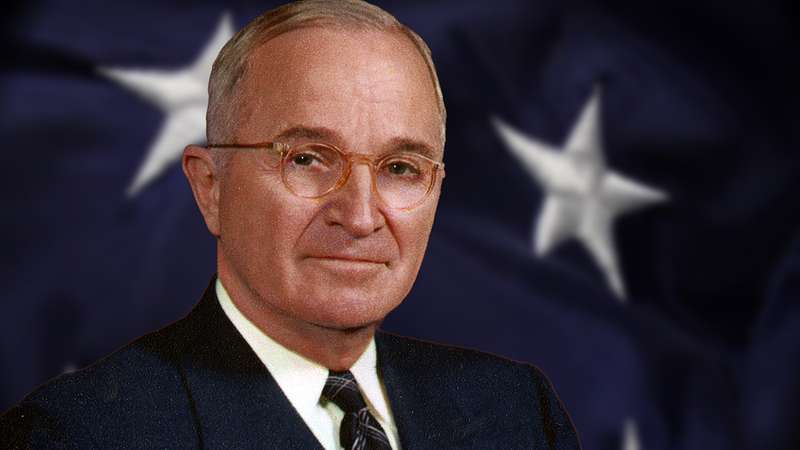Tag Archives: civil war
What We Can Learn From Truman
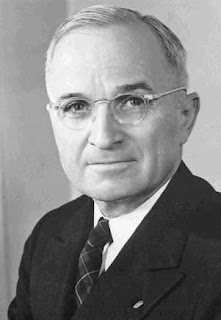
Thoughts on Harry Truman
A Political Analysis
David McCullough
Introduction
Harry S. Truman is one of the great figures of the 20th century. His life was complex, exciting and can impress upon readers valuable lessons to live by. A son of a rural past, he had to control the most powerful, progressive nation in the world. Truman came directly from the people. He lived by the Bible and history, proving that anyone could be a president and a human being. He came through the Great War, financial failure, big party politics, the new deal and the WWII. His life was a part of much of American history during the 20th century. He never complained, he never expected others to follow him blindly, he never required the love of the American people, he did not regard his critics as traitors and he never blamed others for his failures. His character in the office of the President is the archetype. His actions would have major ethical consequences on human history but he was the kind of president that the Founding Fathers would have approved of. Truman had to assume the most powerful nation on Earth after FDR’s death. The weight of that office did not overwelm him because he was trained to take on that difficult task. His responsibilities were more than any president had before him. This is what makes his story so fascinating and meaningful.
![]()
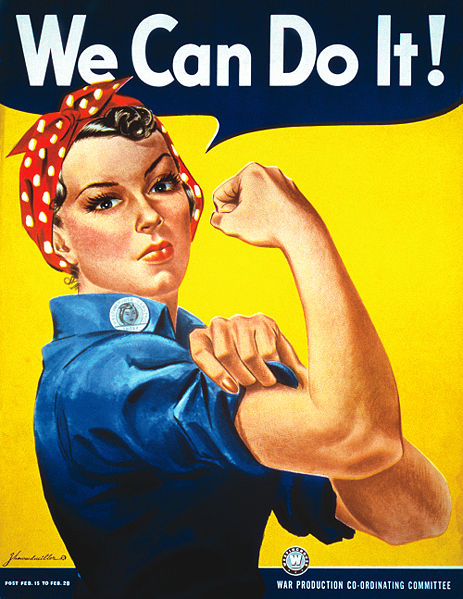
Never Complain & Work Hard:
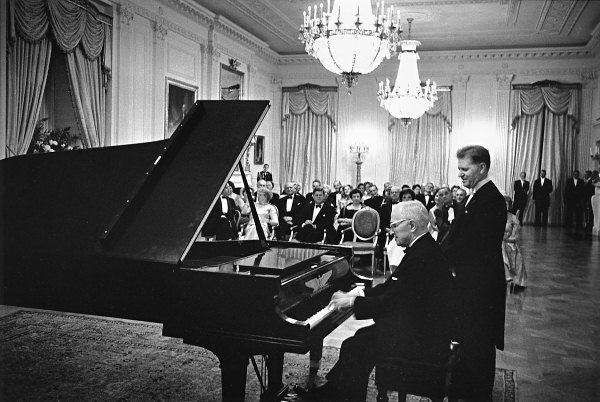
Study People, Piano & History:
Truman would watch people to find out what they wanted and enjoyed. he would try to cater himself to the interests of others. He could always be a friend with everyone. Most people liked Truman in school. He would smile his way along in the world. Unfortunately, he was also very lonely as a child. History was part of life, it was about people and Truman was interested in people. Truman played piano consistently. Truman wanted to be a concert pianist. Truman would wake up at dawn everyday to play piano. Mothers in the neighborhood would hold Harry up as a gem student. Truman loved the Democratic picnics every August at Lone Jack with his father. John Truman was a friend of members in the Democratic Party. Harry went to the 1900 Democratic Convention for William Jennings Bryan and Adlee Stevenson of Illinois. Harry admired Bryan’s common man aesthetic. The Republican’s won in 1900. John Truman networked to advance his agricultural prospects. There was massive racism in Missouri. Truman learnt an important lesson about people which was to not dress fancy. Represent your culture. Even if that culture is grotesque, ignorant but honest. Truman did not question the inequality of black and white people. Truman loved theater.
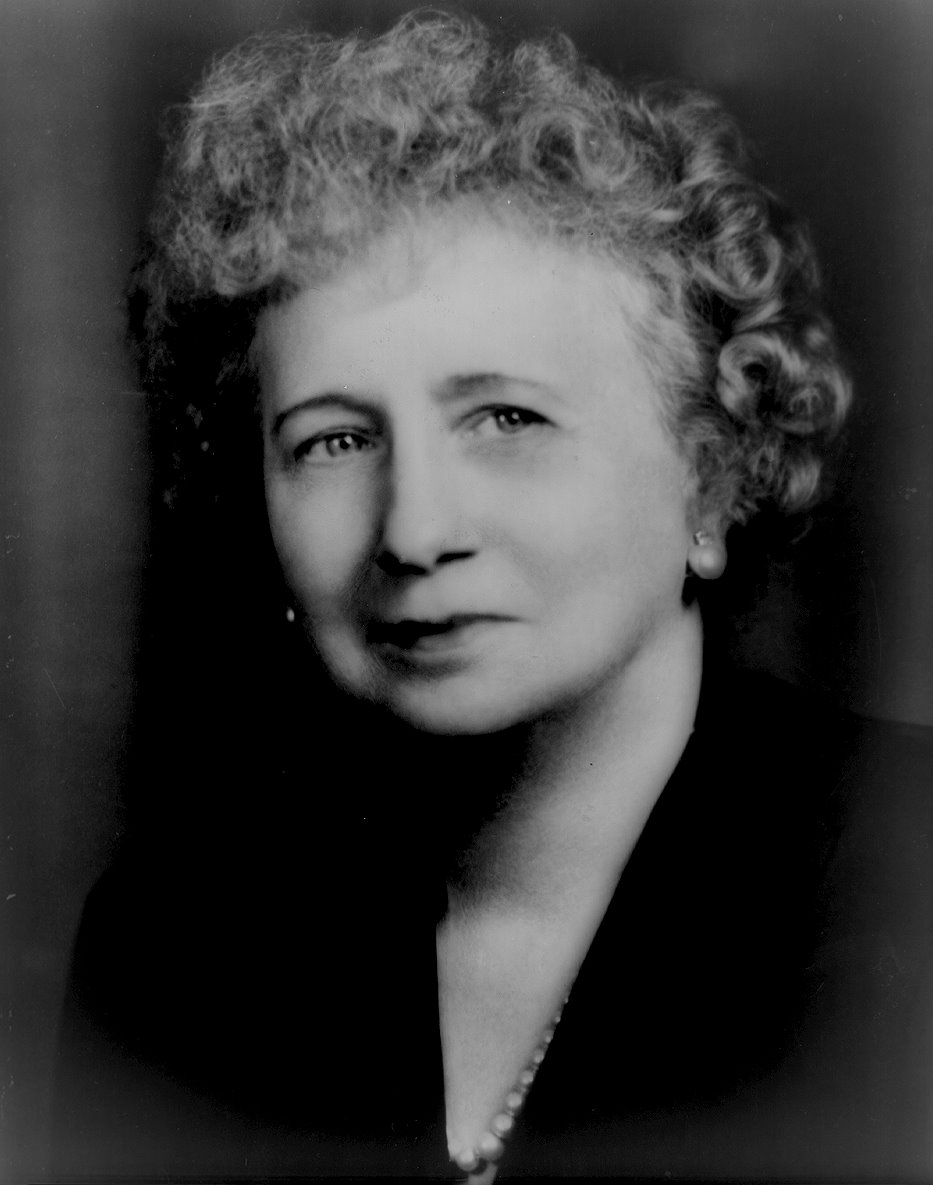
Love Writing & If You Want A Woman Be Persistent:
Truman wrote to his love Bessie endlessly while he was working on his farm. He clearly loved her, sending romantic verbose letters of adulation frequently. His letters revealed his belief in Jeffersonian democracy based on independent farmers: “Farmers make better citizens. Industrialization causes class struggles.” Truman wrote over 200 hundred letters to Bessie and began to love writing. Fortunately, Bessie saved these letters. Harry wrote “I would never make love to women for the fun of it, on account of [Bessie]. I have never met a girl in my life who I didn’t compare to you to see wherein she was lacking and she always was….I’ve always been more idealist than practical.” According to Truman, politicians don’t ultimately matter; they believe that they have reached the highest pinnacle of success. Politicians are egoists or fools. Vile ambition political or monetary was not Harry’s ambition. Harry proposed to Bessie via mail. She refused but finally after the Great War, they married. Bessie married a president.
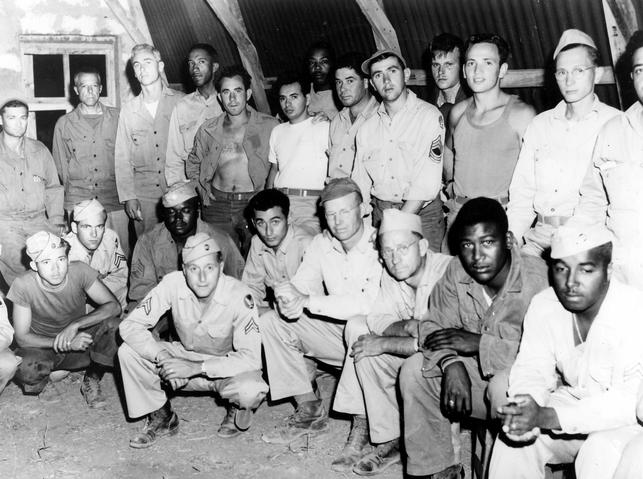
Achieve Something Tremendous in Your Early and Mid-Twenties:
Truman was the captain of a battalion of 195 soldiers in Civil War. A Military Career Trains You For Leadership: Truman joined the National Guard in 1905. Truman was “21 years old and could do as [Harry] pleased”. Harry was well known in camp since he ran a canteen. Jacobson ran the canteen but Harry built a reputation. Their business venture was tremendously successful. Truman went to England for training as a Captain in March 1918. Harry had to lead Dizzy D Battalion (Irish Catholics from Kansas), he was a Mason. Harry was fearful but led them well. Harry loved his new sense of influence. His judgement was key in taking 195 men into the frontlines. Harry built up the battlion from one of the worst to one of the best. Harry called his men “everything he knew” while under fire when Battery D ran into Germans which surprised them because Harry was so proper. During a major American offensive planned by George C Marshall, Harry disobeyed orders to fire on sight but waited until the Germans were in range to maximize effect: he was almost courtmarshaled if not for the fact that he saved lives. On November 11, 1918 the armistice agreement was signed. Harry was seen as lucky. His men admired him greatly. The war made him a somebody and Bessie married him, as mentioned below.

Expect To Be A Lonely Leader:
Truman had few close friends. He was cheerful but he always kept his distance from other people. During committees in the Senate he listened closely but rarely spoke. Harry was hoping to make a reputation as a senator but he would not sell influence and was willing to be attacked if he was right. Always be cheerful. Always be fit. Be bland. Everyone loves an underdog. He didn’t need a following, the limelight, flattery and liked being underestimated. Manage your money; no matter what age, Harry never forgot the value of money. As a Senator, Harry worried about money most. Truman worked as a Bank Clerk until 1905. Harry obsessed about money in his letters to Bessie. Harry had two reasons to be rich: to build his mom a fine house and the second was to win Bessie. Political disillusionment will occur, Truman became a judge in 1925 but his co-workers were deeply corrupt people. Of the three judges, Truman was the only one who wasn’t abusing his position for political/financial gain. Truman believed that his fellow judges were not his friends and had no sense of honour and were very dangerous. Harry doesn’t believe in having friends that he cannot trust. These corrupt judges were paying people off to support them in the election. People with positions of authority will abuse that power like vultures with public money. Harry became disillusioned by politics and wrote a detailed assessment of what these judges had done in a Kansas City hotel.
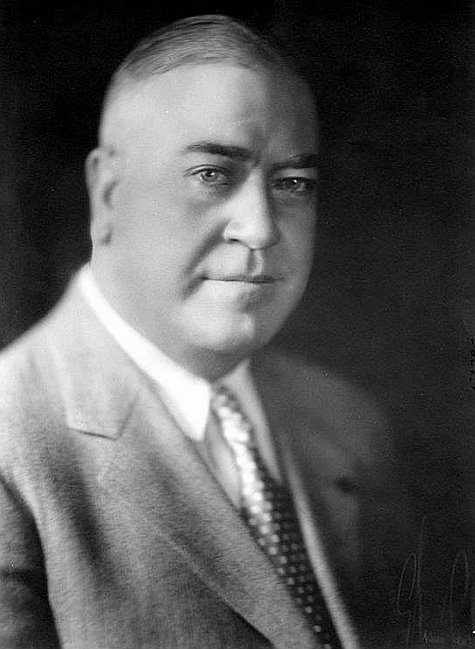
Align Yourself With Successful Political Bosses:
Harry met the Pendegast Family through the army since Tom’s nephew was under Harry’s command. Harry’s business failed so he ran for East Judge in Jackson County. Tom Pendegast was a corrupt political boss but Truman was only able to rise through Pendegast’s help. Truman attached his political fortunes to Tom Pendergast in Jackson County, Missouri. Harry disagreed with Pendergast’s belief that “contract bids need merely be doctored so that the right people got the contract”. Harry refused to be a stooge. Truman decided that Pendergast who ran (and grew up) in gambling houses and parlors was ultimately a good man deep down. In 1934, Pendergast wanted Harry to run for the Senate. Harry had the backing of the Pendegast machine, which he needed to be successful. Harry was not a Senator from Missouri but a Senator from Pendergast. Pendegast eventually went to jail for tax evasion, this tarnished Truman substantially but he overcame it by being a great, honest leader. Truman worked hard to prove that he was far from a Pendergast stooge.

Remember Friends & Good Deeds:
When Truman was moving to Washington as a Senator, he received help from people. Harry did not have much respect in the Senate. Truman had an uncanny ability to recall the good deeds of others and to reward those who were worthy of his trust. Harry never forgot a friend. Truman attended Pendergast’s funeral a few days after being nominated VP. Pendergast had been disparaged as a crook having gone to prison. When Pendergast died of cancer, Truman attended his funeral although many were disturbed with this given that Truman was then the VP of the US. Truman was honouring the memory of a convicted criminal but he refused to forget a friend.

Opponents’ Chief Advantage Is Surprise:
Truman didn’t restrict Roosevelt’s power. He supported the new deal. However, FDR did not openly support him or his competition named Stark in the 1940 challenge for the Missouri Senate Democratic nomination. Stark decided to run for the VP position at the same time as he challenged Truman for the Senate seat. Stark did not tell Truman about his intent until necessary. An incumbent should always expect a campaign for any race. In Kansa City, the Republicans who controlled the judges decided to foreclose on Harry’s Mother’s house in the middle of the campaign. Harry’s land was auctioned because he could not raise money to save her property. The Republicans were hoping to embarrass him during the race and also compel him to quit.
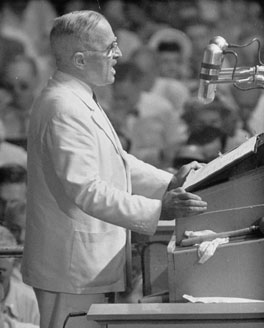
Attach Yourself to a Meaningful Objective:
Truman was interested in efficiency during the dire war years. FDR became very interested in Truamn. FDR was very difficult to read as a leader but FDR called for the Senate to allow the creation of a Committee to investigate the national defence program. Truman ran a special committee on the War weapon production: the “Truman Committee”. Truman was obsessed with getting facts. Truman investigated the scandal of military wastefulness by exposing fraud and mismanagement. Truman saved the country money. Production of weapons was not particularly efficient and some weapons were faulty. Truman wanted to intervene in the creation of a Weapons czar. If you can claim you are saving people money, then you will be rewarded for your efforts. Truman saved thousands of lives by ensuring American military equipment functioned properly.
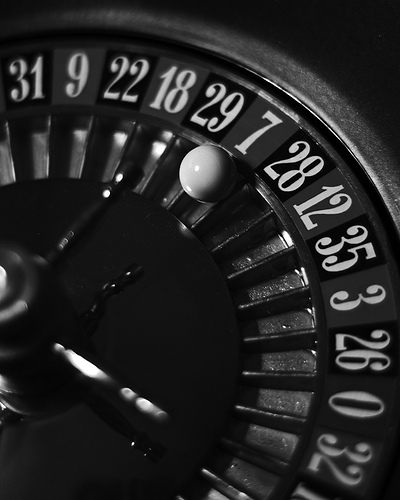
Try To Get Lucky:
Fortunately for Truman, Roosevelt let things slide with Henry Wallace who was the presumptive VP nominee in 1944. FDR was very ill and the VP would likely be the next president. Roosevelt didn’t pursue handling the question of his vice presidential issue. Democrats in the party didn’t want Wallace to become VP and likely President and attempted to block his ascension. Truman didn’t appear to be ambitious. Truman was a compromise candidate. He appeared honest and patriotic. Many of the party bosses supported Truman, although Truman claimed repeatedly that he didn’t want the job. During the Chicago Convention, Wallace was the choice of the delegates but Truman was emerging. Byrnes was also a possible winner but was an ardent segregationist. Ed Flynn convinced the president to go with Truman, there was rule bending but Truman won on the second ballot. Truman’s acceptance speech was shy for a famous new vice president. His high-pitched voice was hilarious and memorable at Chicago. He was the 2nd Missouri Compromise. Many were disappointed with the nomination because it satisfied no one. People didn’t like the way Truman was elected. It was a corrupt approach. Many party insiders felt that “mousy” Truman was considered one of the weakest candidates in US Democratic history. But the New York Times praised his political qualities “having been through the mill”. During the Federal election, Roosevelt hated Dewey. His hate emboldened him. Truman was straightforward and plain speaking during the campaign.
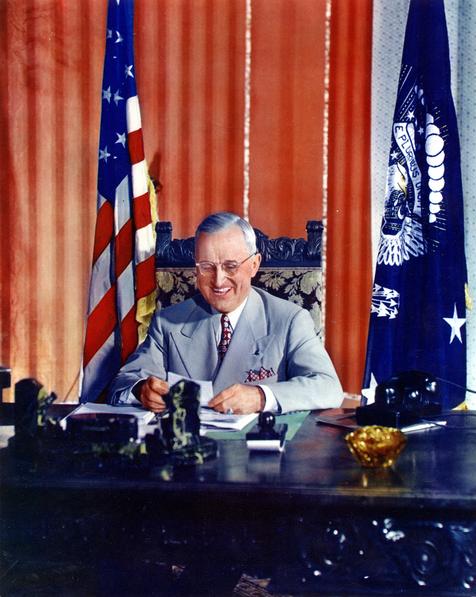
Expect Resistance When In the Shadows Of Greatness:
Truman had a nightmare during the campaign in 1944 that he would be president. It came true…but it wasn’t a nightmare per say. On April 12th, 1945, Truman ran to the White House after hearing that Roosevelt had died. Truman was in big trouble. With the news of Roosevelt’s death, veteran ‘new dealers’ and millions of Americans overseas where shocked that Harry Truman would be president. People feared that the war would drag on longer because of FDR’s death and Truman’s succession. BUT once you’re president, the country will back you. Truman’s acceptance speech made it clear that he was going to work hard. Truman asked to be only a great servant for his people. Truman had a Midwest Accent. People appreciated Truman’s accent. Others wanted to see him succeed. Republican’s did not want to rock the boat because it would be considered unpatriotic during a time of war. Stalin believed that America was now soft. Stalin wanted to invade Europe. Potsdam Conference created the result that Stalin would attack Japan. However, Stalin refused to relinquish territory gained in the USSR’s march across Europe. Churchill was defeated and Atlee was the new PM in Britain during the Potsdam Conference. Potsdam Conference was not a success. Stalin later told Khrushchev that Truman was “worthless”.
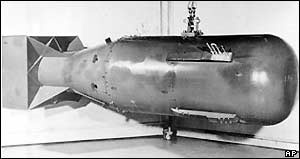
With Great Power Comes Great Responsibility:
The Manhattan Project: Truman was curious about having this weapon tested. In June of 1945, the bomb was tested and had worked. George Marshall claimed that a million American’s would be killed in an invasion of Japan. Truman believed that the shock value of the bomb would end the war. Okanawa was a battle that had major loses. Japanese kamikaze air pilots as 30 ships were sunk with 12,000 Americans killed in Okanawa. Japanese military loses were 10x worse. Civilian deaths on the Island were 150,000. Tokyo was bombed heavily in March 300 B 29s bombed Tokyo killing 100,000 civilians. Osaka was bombed heavily as well. Japanese morale was unaffected. Truman wanted to shock them into action. The Committee believed that no demonstration or warning would work. It would be worse if the bomb malfucntioned so he did not notify the Japanese about the impending bombing. Truman never considered not using the bomb. Truman could not say “No” to the bombing.
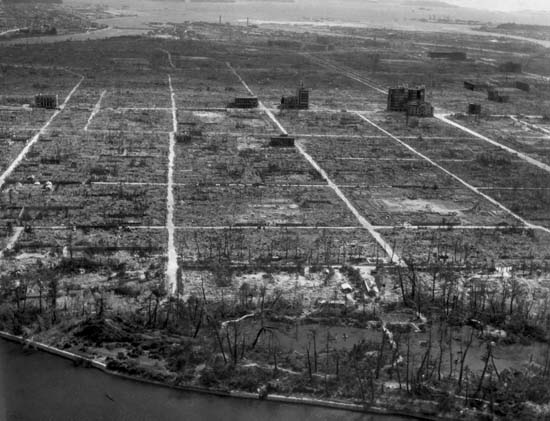
Use Drastic Measures to Defeat Your Enemy:
Hiroshima was bombed on August 5th. Truman learned of the complete success of the bombing. Truman was very happy and had a broad smile upon the news of mass destruction. A quick end to the war with the equivalent of 20,000 tons of TNT was only a positive thing for Truman. Truman explained that an atomic bomb harnessed ‘the nature of the universe’. Truman said that Japan would and should be prevented from waging war. Truman promised to destroy BUT many were terrified by the idea of this new kind of horror. Could the world handle the use of such destructiveness? The aftermath resulted in a 60% destruction of Hiroshima. 80,000 civilians were killed instantly with over 50,000 killed in the coming days. People burning into cinder while standing up, birds were ignited in mid-flight.
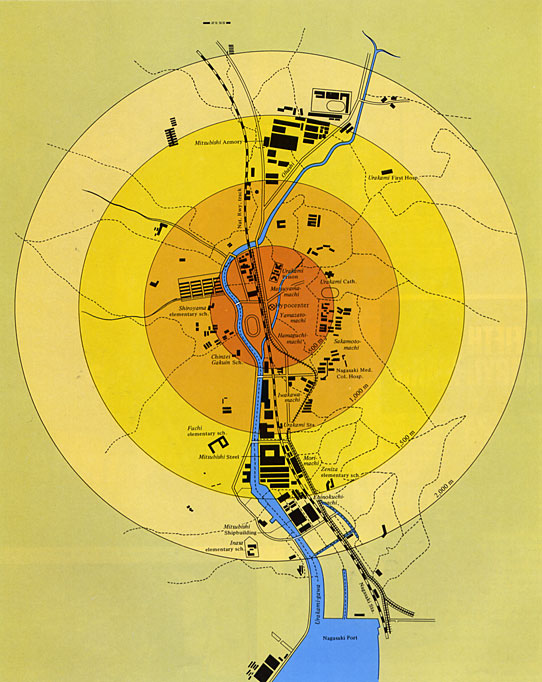
Force Your Enemies Hand:
Truman bombed Nagasaki. 70,000 died. The bombardier had missed the city by two miles. Truman knew about the tragic destructive consequences. Truman knew that it would be the most powerful deterrent known to man. Truman “found the bomb” and used it against civilians. Truman demanded Japanese surrender. Prime Minister Suzuki wanted war on Japanese soil. Others “wanted [Japan] to be destroy like a beautiful flower”. BUT the Japanese cabinet heard about the Nagasaki bombing and agreed they would surrender. The Emperor could stay. August 14th, 1945 Truman announced the end of the war. Truman’s popularity was beyond expectation at 85%. By 1946, Truman had dropped to 35%. Truman had a 21-point domestic program. Business leaders wanted free markets. Soldiers returned looking for jobs.

Don’t Get Demoralized:
there is reason to be optimistic. The US had virtually full employment, national income at its highest ever. Truman strengthened the Anti-Trust laws, national health insurance program, and fair level of return for farmers, aid to soldiers, home construction and new progress for human rights. He advocated a balanced budget, control of nuclear weapons. The country encountered massive housing issues. Truman seemed to believe everything works itself out. Truman called for reasonable pay raises. Every major industry was effected by rail strikes. Truman wanted temporary legislative power to put the strike into military service but the strike was quickly resolved. Drafting the strikers was accepted by Congress. The Senate was against the proposal but the strike was over. Trumann showed the backbone of the President. Republicans won the mid-term elections of 1946. The new deal was broken in Washington. Harry Truman was now a minority president.
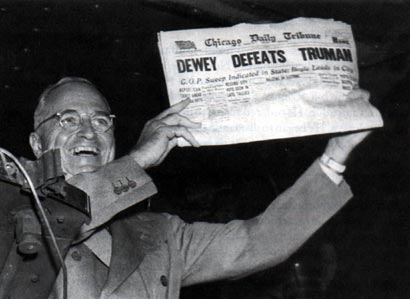
Never Believe You Are Beaten (Even If The Media Prints It!):
(Presidential Race 1948) Israel is born, the bikini is unveiled, the jet breaks the sound barrier but Truman was going to lose according to Life Magazine to Dewey. Henry Wallace had split from the Democrats. Truman didn’t implement a cohesive campaign strategy: he took to a railway-styled campaign. Truman had big crowds. The people turned out to see Harry Truman. Truman attacked the Republican’s for their coldness. Truman believed that the Republicans were trying to steal from the poor. Truman called bankers “blood suckers of Wall Street”. Truman had solid attack lines. Dewey on the other hand was careful, cruel and controlled. Dewey didn’t want to make mistakes he wanted to ride his poll numbers which were much higher than Truman’s. Truman looked likely to lose despite Dewey’s lazy campaigning. Truman lashed out at the Republican congress, press, and the candidate. Truman did the best he knew how. Dewey had 49.5 to 44.5 for Truman at the end of the campaign. None of the press believed that Truman would win. On Election Night, Truman had the popular vote by 2 million votes but the farm vote had not come in until past 2am. At 10:14am the next morning, Dewey was defeated after many newspapers went to print. Truman was the miracle man. Not one of the polling organizations was accurate. Not one of the newspapers was accurate; the people had made fools of those “in the know”. This event was dubbed: “the great laughter of the public”. The press was dumbfounded. Gallup was completely embarrassed. The fault was not the polls were imperfect but that they were two weeks too late. On the last two weeks of the campaign Gallup did not take anymore polls. There was a massive shift in support in the last two weeks of the campaign. 2/3 of the population of Washington came to welcome Truman for his inauguration in 1948.
Lead With Big & Helpful Ideas:
Truman helped create the United Nations. Also, the Truman Doctrine was assigned to George Marshal to shape the plan to provide help for Greece in February of 1947. The concern was the Soviet invasion of Eastern Europe. Money for Greece and Turkey was only the beginning of a plan to protect Western capitalist interests. Marshall outlined a speech for the goals of entering European politics. The situation in Greece was massively significant. If he didn’t act, then the Soviets would likely expand their sphere of influence. It signaled a turning point. America was not longer non-interventionalist. The future of nations in Europe had driven the US into intervention. Truman said that the cost of not acting was far more horrible than the measures that would occur. At a Harvard convocation, Marshall made his declaration. Stalin was supportive at first but congress would not support aid to USSR satellite states, Stalin pulled out thereby making the European Reconstruction possible from the perspective of congress. The central gem to Truman’s presidency was the Marshal Plan. The Marshall Plan would feed and support the conquered. Their borders had not guns or forts anymore, this was economic aid. The US wanted peace in the world.
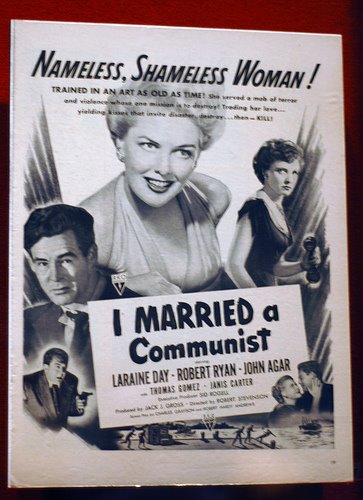
Don’t Irrationally Fear Your Philosophical Enemy:
Truman feared the specter of Communism only slightly. The Cold War events were an expression of the philosophical war that ensued. China becomes a communist country under Mao in 1949. The USSR had detonated an atomic bomb. The hydrogen (super bomb) would be an excellent deterrent the Americans would flex. The UK revealed that there was a Russian spy. McCarthy claimed that he had a list of communists in the state department. McCarthy seemed to be on to something even though he didn’t have much evidence. Truman felt that McCarthy was the greatest asset Moscow had. Despite the hysteria, Truman was unphased.
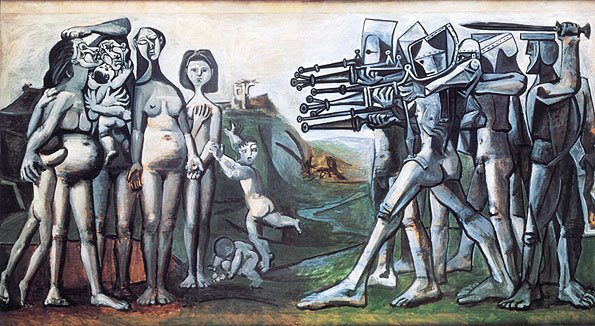
Defend Your Allies Vigorously:
North Korea attacked South Korea in 1949. Kim Il Sung wanted to crush the south. The republic of South Korea at the 38th parallel was chiefly agricultural while North Korea was purely industrial. Korea is an extremely small country. The NKPA (North Korean People’s Army) was marching south to conquer the entire peninsula. In the summer of 1949, the UN (mostly US army) fought and fell back. The equipment could not prevent the USSR tanks from crossing the line. It was a dark chapter but the UN and South Koreas held down the south. McArthur was responsible for the UN army. Truman called for 60,000 men to South Korea. Truman had to ask how they could afford to defend Korea with only 10 divisions after years of cutbacks in the military. Truman didn’t want to commit everyone to Korea or he might leave US susceptible to attack. Truman didn’t like McArthur’s ridiculousness. McArthur had a heroic standing. The UN forces appeared in Korea under the international flag: a testament to the emerging international law.
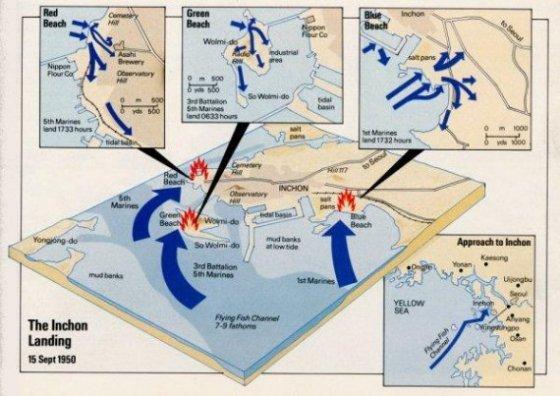
Fortune Favours The Brave:
MacArthur was certain that China and Russia would not intervene in Korea. He wanted to win the war with one bold stroke but Truman feared that this proxy war could explode into WWIII. MacArthur eyed invading North Korea and to continue beyond. McArthur began to intervene in public policy. MacArthur said that Chang High Chek and Formosa needed to be defended he felt it was not fair that this would be unfair to Asians. Truman fired Johnson and nominated Marshall. MacArthur wanted an amphibian assault in Northern Korea at Inchon. It was the riskiest proposal because of the coastal mud and cliff-faces. Montcalm was defeated in Quebec by Wolfe’s climbing of the Quebec City walls; this was a similar situation to MacArthur’s Inchon. Ultimately, MacArthur’s Inchon invasion was a success. The causalities were very high, however. In 11 days Seoul was retaken. Half the North Korean army was split in a pincher movement. It was a military miracle. The question was then whether to cross the 39th parallel. MacArthur wanted a hot pursuit of the North Koreans. The excitement of victory against North Koreas engulfed MacArthur’s already shaky judgement. He believed that basic military action says that you should chase your defeated enemy until they are destroyed. Underpressure, MacArthur was authorized to invade North Korea. MacArthur was not to cross into China, however. Carrying north was risky: a) Chinese intervention b) winter.
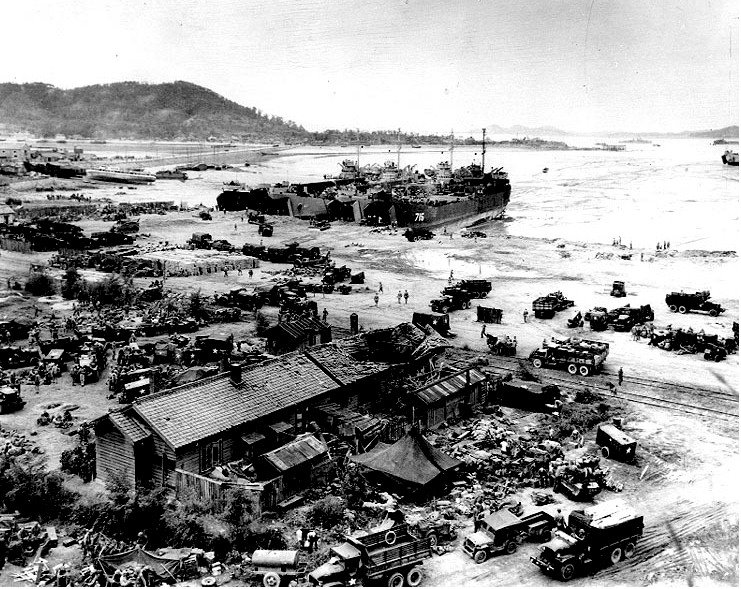
Always Confront Your Friends and Enemies Directly:
This allows you to understand their position more than any letter or email could possibly allow. Truman went to see MacArthur, some press believed he wanted to cash in on the successes of the war so far. The two met alone for 2 hours. MacArthur believed that North Korea would be defeated. Some historians believe that Truman traveled to Korea for not much. Truman was impressed by MacArthur. They liked each other. There is no substitute from someone who has first hand experience. Truman wanted to make sure that there was UNITY in the war strategy.
Protect Yourself Against Assassination: On November 1st, 1950, two Puerto Rican assassins attempted to kill Truman to draw attention to the their nation’s plight. The president under heavy guard went to make a speech that day anyway. Office Coffelt was killed. Later, Truman was shocked and deeply disturbed when JFK was assassinated. He would not do any further public speeches. Truman wanted the secret service reinstated for all former US presidents.
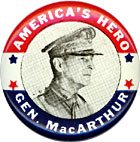
Sometimes You Have To Fire A Hero:
MacArthur wanted to enlarge the Korean war. He wanted to prevent China from gaining a foot hold in North Korea’s defense. MacArthur had absolute faith in himself. MacArthur attempted to attack the north in a conclusive disservice attack. The Chinese counter-attacked fully. MacArthur wanted a naval bombing in China. MacArthur wanted to bomb mainland China. Truman decided to not let the crisis in Korea flare into a world war. There was to be no war with China. There was a tragic retreat in Korea. MacArthur’s forces were pushed back in minus 25 degree temperatures. MacArthur denied his strategy was a failure. MacArthur also denied that his offensive had instigated the entrance of China into the conflict. MacArthur blamed Washington for not allowing him to pursue his goals. Truman didn’t like how McArthur was dealing with the defeats. Truman should have asked for MacArthur to resign there. Truman cut out MacArthur in the planning of the war. The 8th Army was again at the 38th parallel. MacArthur threatened to attack China. MacArthur seemed to want to sabotage peace. MacArthur defied Truman. Truman reprimanded him. MacArthur had written a letter to a friend that said that there was no substitute for victory and that he would like to crush China. Truman wanted a cease fire. Truman fired MacArthur. There was a bitter backlash against Truman’s decision. Senator Nixon called from MacArthur’s reinstatement. Republican outrage was palpable. There were marches on Washington to call for MacArthur’s reinstatement. Truman was burned in effigy. Many newspapers endorsed Truman’s decision. It was a mark of Truman’s strength of character. If it was a UN mission why were most of the causalities Americans? 69% of the country backed MacArthur. Only 30% of America would support a war with China. Truman seemed to want a stalemate. MacArthur was returned to the US with cheers as a grand general. Given some time, Truman believed that MacArthur would be reduced to human preordinations. Truman believed that America would come to understand that his decision was excellent. McArthur said upon resignation that “old soldiers never die, they just fade away.” Many people cried. It was MacArthur’s final hour. Truman thought McArthur’s speech was a bunch of “damned bullshit.” McArthur didn’t like the appeasement that Truman seemed to advocate. MacArthur seemed self-absorbed. He blamed the CIA for not noting the size of the Chinese army. McArthur belittled the idea of a WWIII. MacArthur said it was not his responsibility if the USSR and China both start WWIII. MacArthur’s popularity began to fade away.
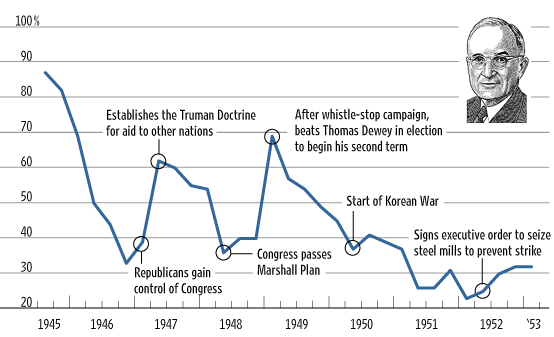
Never Expect to Be Loved In High Office:
Approval ratings don’t matter to historians. Truman had a 32% approval rating. 43% of Americans believed the Korean War was a mistake. Economic growth was massive but Truman was losing support. The standard of living had gained to an unparalleled level in human history. 62 million American’s had jobs. Farm income and corporate income were at an all time high. The post-war economic collapse didn’t happen. The minimum wage had been increased. Truman was charged with being soft on communism, a man accused of an enemy of private enterprise, a man accused of being the enemy of the new deal ultimately, the man was did more than anyone else to in the opposite of what was believed. Truman gave a flat speech that was characteristic of his style.
Leave The Stage Gracefully: Truman’s final address famously said “I hope and believe we have contributed to the wealth of this nation. When FDR died I thought there were a million man better qualified to take up the presidential task but I had to do it and I have given it everything that was in me. And I did not work alone, that you were with me. The people had supported me.” Truman’s departure was praised on all sides. Eisenhower was elected in 1952. Truman was just plain Mr. Truman: a private citizen again.

